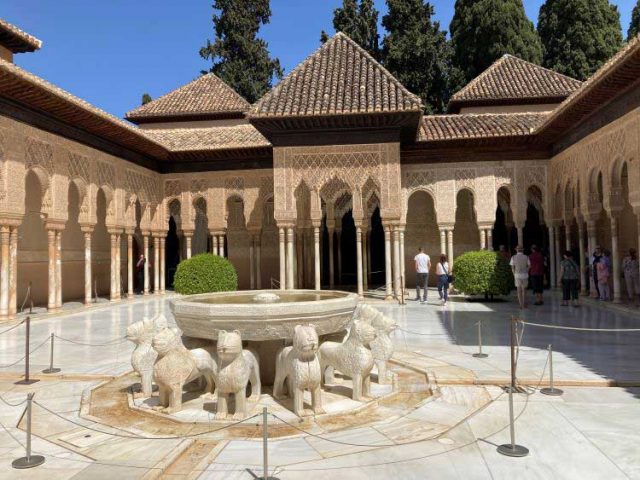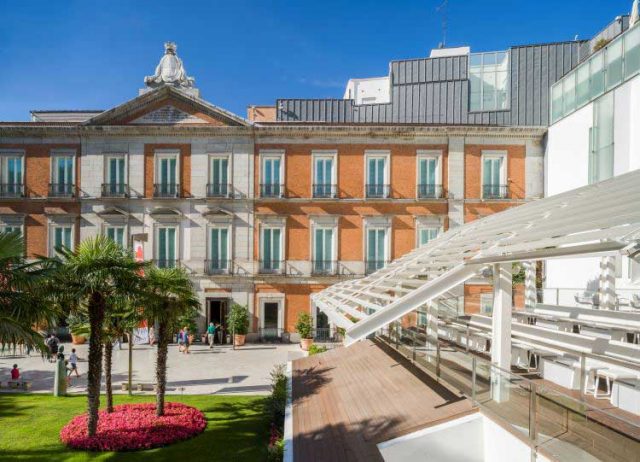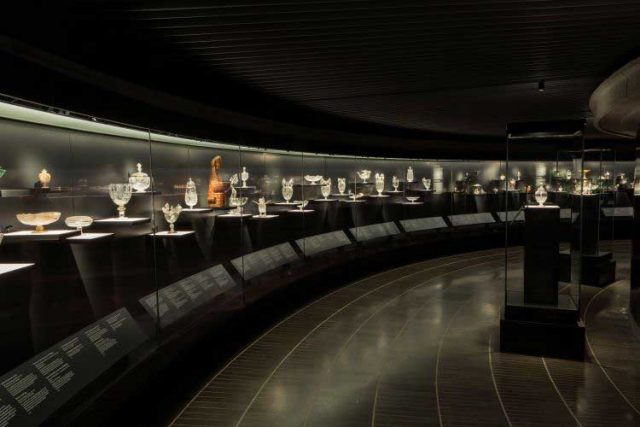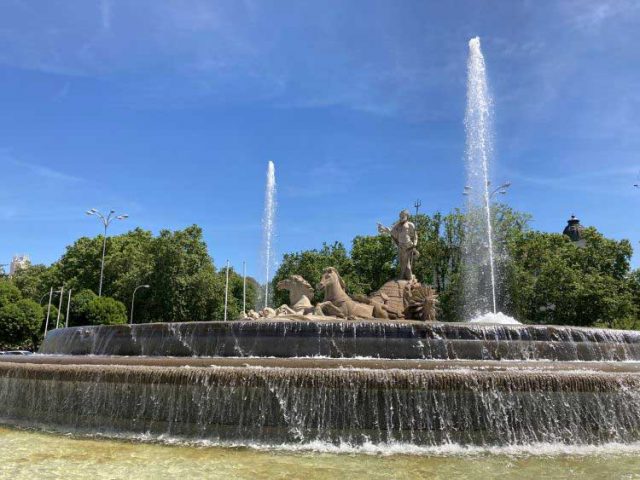Recently my husband and I had the chance to travel to Spain and spend a month tasting and experiencing the best of what the country has to offer. This last part (part four) of the “Best of Spain” stories follows our travels to Cádiz, Málaga, Granada, and Madrid and highlights places of interest from museums to fountains, markets and tapas bars.
CÁDIZ
Dating to the 12th century, Cádiz is one of Europe’s oldest cities. This port city is located at the tip of a peninsula in Spain’s southwest. Today, find stunning beaches, beautiful architecture (including Roman ruins) and culinary delights.
One of the best ways to experience the city is from on high. Recognized internationally for its watchtowers, Cádiz offers a 360 degree view from the top of the Torres Miradores de Cádiz, the city’s official watchtower, located in the middle of town and at its highest point. It was here during the 17th and 18th centuries that the bustling port activity was chronicled.

In 1994, a camera obscura was installed at the tower. As one of several around the country, it affords the chance to experience a panoramic view real time. Simply put, standing in a darkened room, images are projected on a white screen that reflect activity taking place outside. With multiple lenses, the camera is able to show different parts of the landscape at a time. In San Francisco, find a camera obscura at Lands End.
The Mercado Central de Cádiz is a standout. Stop at tapas bars around the outside of the building or savor a treat directly from a market stall. For the ultimate in a tapas experience, head to Taberna Casa Manteca.

MÁLAGA
Málaga is located on the southern coast of Spain hugging the shores of the Mediterranean; it’s often referred to as the capital of the Costa del Sol. This Andalusian gem is home to Roman ruins, an 11th-century fortress, stunning parks, pedestrian passageways along the water, and a vibrant art scene.

Among the museums, find the Museo Picasso Málaga. Having his art displayed in Málaga fulfills a dream Picasso had to dedicate works to his birth city. His boyhood home is also open to visitors. The museum showcases Picasso’s extensive talent across artistic movements and periods. Enjoy the paintings, sculptures, ceramics, and more.
Get to know Málaga more intimately through its markets and tapas bars, especially El Mercado Central de Atarazanas and Mesón Ibérico, all the buzz with locals.

GRANADA
Immerse yourself in the culture of the Nashrid dynasty in their former capital city of Granada. At the Alhambra Palace, spend hours in awe of the vast splendor, the architecture, the tile work, the pools and fountains, the verdant gardens and landscaping, and the intricacy of the overall design — realizing it has survived since the 13th century (after taking 100 years to build). The Alhambra Palace was recognized as a UNESCO World Heritage Site in 1984, and much restoration has occurred to restore this Moorish treasure. Catch glimpses of the amazing structures as you walk through the city.
Unique to Granada (and a few other Spanish cities) is the tapas tradition of the house giving you a complimentary tapa every time you buy a drink (in most of the rest of the country, you buy both). Local favorites are Bar Alitar (best snails) and Restaurant Oliver. The Mercado San Agustin is great for tasting and people watching.
MADRID
Rich in cultural and artistic treasures, Madrid, Spain’s capital city, dates to the 16th century. Today, it is a major financial center with global reach and influence. Madrid is also a city of contrast with an old center of narrow streets adjacent to modern structures and imposing grand boulevards.
The Paseo del Prado, tree-lined with pedestrian walkways and a wide avenue, is home to Madrid’s trio of renowned museums: The Golden Triangle of Art. Here’s what we found:

The Museo Nacional Thyssen-Bornemisza is stunning. The private collection was purchased slowly over time and represents artwork (including many masterpieces) from the 13th to 20th century. In addition to the permanent collection, the museum is a cultural hub for education and diversity and includes lectures and courses, children’s activities, special tours, performances, and more. View the works of Rembrandt, O’Keeffe, Degas, Monet, Hopper, and many others. Exhibitions change frequently.

The Museo Nacional Centro de Arte Reina Sofia aims to make art accessible to all, encouraging public debate along the way. Originally a hospital, the building has been transformed with multiple galleries infused with natural light and two exterior steel and glass elevators. Among the most famous works is Picasso’s Guernica; it will take your breath away. The museum boldly displays works from the 20th century and numerous other contemporary pieces. Many of the artists are Spanish. Outside, a serene courtyard is dotted with sculptures including those created by Calder and Miró. A modern extension to the museum, made of aluminum lacquered in red, is comprised of modules that house exhibition halls, auditoriums, a library, and more.

The Museo Nacional del Prado holds great works from throughout the centuries. The collection is massive, so have a plan of attack before visiting. See many Goyas, Rembrandts, Rafaels, and Rubens. In addition to the paintings and sculpture, we particularly enjoyed the Dauphin’s Treasure Gallery, a collection of ornate crystal, jewelry, and other decorative pieces. They are laden with precious and semiprecious stones, gold, silver, and enamels, beautifully exhibited in an intimate circular gallery.

The Paseo del Prado also leads to the well-known Fountain of Neptune, with the Roman God, Neptune, holding a trident in one hand and a snake in the other atop a chariot drawn by sea horses and surrounded by dolphins; and the Plaza de Cibeles, named for the Greek goddess of nature and the protector of the city. The plaza is home to both the Palace of Cibeles, now City Hall, and the Fountain of Cibeles, where the goddess is depicted atop a lion-drawn chariot).
Discover Madrid’s neighborhoods by its popular markets and tapas bars.
OTHER ESSENTIALS
Patty Burness can be found on Twitter (@pattygb), Instagram (pburness) and reached by e-mail at [email protected].





